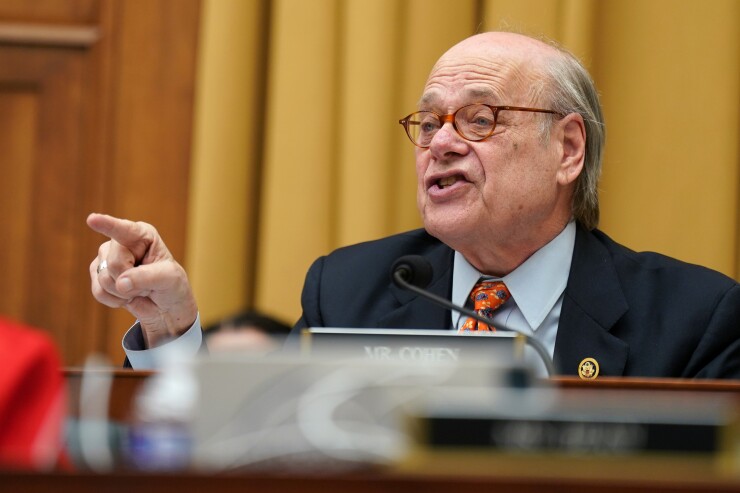Transit agencies across the country are being forced to deal with new trends in ridership, new travel patterns, and dwindling federal funds from pandemic- related relief that make the next few years crucial for bringing our nation’s transit system into the new world.
That was the takeaway from the House Transportation and Infrastructure Committee hearing Thursday on the revenue, ridership and post-pandemic lessons in public transit, discussing new ways forward following the now largely spent $180 billion that’s been doled out to transit authorities since 2020.
Bloomberg News
“We believe that transit agencies and communities will benefit greatly from soliciting external input, streamlining the procurement process, and rethinking and redefining the benefits of contracting,” said Laura Hendricks, chief executive of Transdev U.S., a private transit operator. “We recommend establishing an advisory committee that would provide recommendations to the FTA on how transit agencies can adapt to changing demand and usage, explore how technology innovations can help transit agencies meet the changing demands, and suggest what workforce training needs will be needed.”
A bill titled the Stronger Communities Through Better Transit Act, introduced in January by Rep. Hank Johnson, R-Ga., and co-sponsored by more than sixty of his fellow lawmakers was granted new support during the hearing and would authorize $20 billion per year over four years in federal matching funds for public transit operating expenses.
“The public transit systems are expensive to run and they should be funded by partnerships with agencies in local, state and federal governments,” said Rep. Steve Cohen, D-Tenn., a co-sponsor. “The bill will take a balanced approach to remedy operating expense shortfalls without diverting too much funding away from capital expenses,” he added. “If we put all this money into capital and you don’t have people riding, we’re not using the capital. We gotta have the system work and that’s going to take fares.”
Cohen also pushed back against the notion that transit is a local problem but recognized there could be some problems if the bill were to go through and federal dollars be opened up for operating expenses.
Greg Regan, president of Transportation Trades Department at AFL-CIO noted that a way to combat state and local governments using these federal dollars for seemingly anything under the sun would be to have separate pots of money, where “you have different grant programs where you can apply for operating assistance through one pool of money and apply for capital projects to another pool of money,” Regan said.
“That provides agencies with the flexibility they need to identify what their needs are at the moment, whether that’s a situation where you just need to refleet your bus program, or other situations where there’s a shortfall, there’s a gap in their funding where they need to have operating assistance, or they need to be able to expand services to areas that are being underserved,” Regan added.
But there is a fundamental tug and pull between transit authorities and lawmakers, highlighted recently in New York Gov. Kathy Hochul’s decision to
“It is good that Governor Hochul decided to indefinitely postpone the implementation of this congestion pricing plan from the very beginning,” said Thomas Kean Jr., R-N.J., during the hearing. “Many of my colleagues in New Jersey and around New York City advocated for the cancellation of the congestion pricing plan that was and is deeply flawed, unfair and simply a money grab on New Jerseyans,” he added, indicating that he will continue to work to make sure this plan is never implemented.
Caught in the middle of these discussions is how federal subsidies are doled out to transit authorities versus subsidies for drivers, which according to a study conducted by Rep. Seth Moulton’s, D-Mass., office, accounts for $64 billion per year for the state of Massachusetts when all tallied up.
“When it comes to the interaction between subsidies for road networks and transit systems, for one, I think there is a synergy with congestion pricing, not simply because of the revenue but more for the incentive not to drive at those peak hours and that may make transit more attractive,” said Marc Scribner, senior transportation policy analyst at the Reason Foundation.
